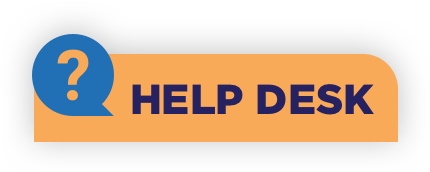SAS must be licensed for use, so many researchers are used to paying for this license. At this time, registered researchers do not need to pay for a SAS license while using the SAS Studio application on the Researcher Workbench. The software is provided for no additional cost to researchers through the Researcher Workbench. Users […]
FAQ Category Archives:
Can I use my personal or institutional SAS account to analyze the All of Us dataset?
You cannot use your personal or institutional SAS login or SAS software to analyze the All of Us dataset. You must use SAS Studio within the Researcher Workbench to analyze All of Us data. To use SAS Studio, log in to your Researcher Workbench account and click the “SAS Studio” button on the right hand […]
How is the All of Us Research Program different from other longitudinal cohort studies?
Unlike many research studies that focus on a specific disease or population, the All of Us Research Program will provide a national research resource to inform thousands of research questions, covering a wide variety of health conditions. A cohort of 1 million or more participants will contribute data from electronic health records (EHRs), biospecimens, surveys, […]
What is the composition of the All of Us cohort?
All of Us aims to enroll one million or more participants who have different backgrounds and come from different parts of the country. The depth and breadth of data captured from this large cohort enables research on a range of health topics and conditions. For more information about the data available, visit our Data Browser.
Does the All of Us cohort offer a representative sample of U.S. citizens?
No, the All of Us cohort is a broad convenience sample, and findings are not generalizable.
How are participants recruited, and what does participation entail?
Many participants are invited to enroll by one of our partner health care provider organizations, which include large academic medical centers, VA medical centers, and community health centers across the country. Participants can also enroll directly through our website, JoinAllofUs.org, or at certain All of Us events. All of Us participants are able to share […]
What data are available for analysis?
Within the Cloud-based environment of the Researcher Workbench, registered researchers use R, Python, or SAS to link and analyze a variety of data types — surveys, physical measurements, electronic health records (EHRs), wearables, genomics — to conduct a wide range of studies.
How are you gathering and curating information from electronic health records?
The All of Us Research Program employs Observational Medical Outcomes Partnership (OMOP) Common Data Model Version 5 infrastructure to ensure feasibility and standardization across electronic health record (EHR) data for researchers. The All of Us data set is comprised of EHR data from 14 OMOP tables, including Person, Visit Occurrence, Condition Occurrence, Drug Exposure, Measurement, […]
What additional data will the program add in the future?
The breadth of data types collected continues to expand. In the near future, All of Us will begin analyzing biological and genomic assays on participants’ biospecimens. Upcoming surveys may address physical activity, diet, medications, environmental exposures, and more. Participants will also be able to contribute data from additional fitness trackers, mobile apps, and other digital […]
Are you collaborating with other cohort programs?
Yes. Our advisory panel has included representatives from large cohort studies in the United States and abroad, and All of Us leadership meets regularly with many U.S cohorts as well as an international consortium of large cohort programs to share best practices.
Will there be funding opportunities?
The National Institutes of Health (NIH) may issue funding announcements in the future to support research studies using All of Us data. For updates, visit AllofUs.nih.gov and subscribe. To learn more about NIH funding opportunities generally, visit https://grants.nih.gov/grants/oer.htm
What tools will be available for me to analyze the data?
The Researcher Workbench features several tools to support data analysis: Workspace: A workspace is the place to store and analyze data for a specific project. Each Workspace has a dedicated space for file storage that can be shared with other users, allowing view-only or edit access. Cohort Builder: Within the workspace, the Cohort Builder’s guided […]


